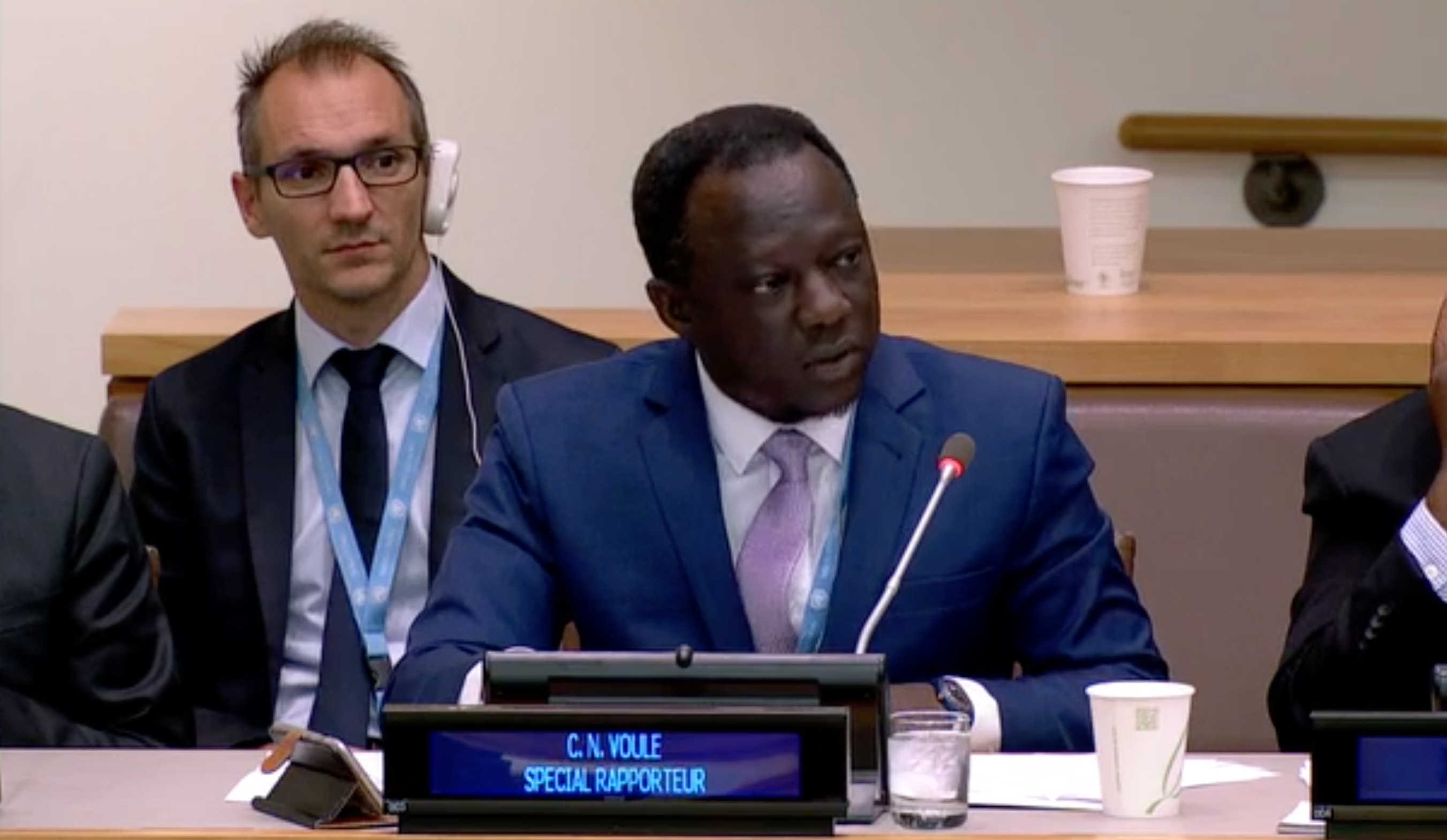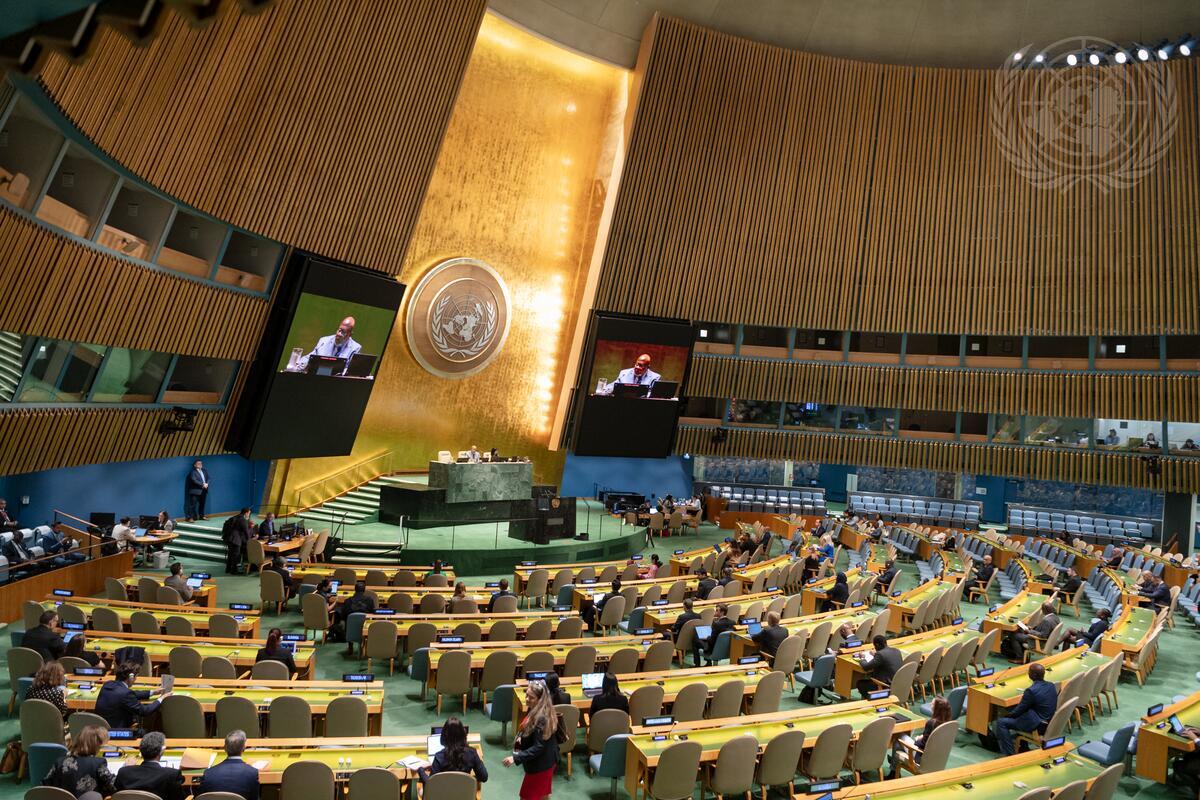
Iran: Human Rights Council must convene a special session
Fifty organisations urge the UN Human Rights Council to urgently convene a special session to address an unprecedented escalation in mass unlawful killings of protesters in Iran.

The Special Rapporteur on the right to freedom of peaceful assembly and association, Clément Nyaletsossi Voule addressed the UN General Assembly on the closing of civic space globally and its negative impact on the achievement of development goals in the 2030 Agenda for Sustainable Development.
On 15 March 2019, Voule addressed the UN General Assembly’s Third Committee in his report (A/74/349) which shows how restrictions on civil society worsen the lives of those living in poverty and further enable those in power. That narrowing of civic space can be associated with increased poverty and economic inequality, in direct contradiction to the 2030 Agenda for Sustainable Development.
‘Civil society plays an integral role in promoting the sustainable development goals. Silencing civil society denies its critical role in achieving those goals. Not only that – as Voule highlights: corruption thrives. The voices of human rights defenders, and particularly the right to freedom of assembly and association, must be protected,’ said ISHR’s Tess McEvoy.
The Special Rapporteur identified that one root cause of governmental restrictions on the right to freedom of assembly and association is that certain States perceive the exercise of those rights as a threat to development and public order. ‘In reality, civil society organisations provide expertise, knowledge and experience,’ emphasised Voule, ‘and States should view them as a critical partner in the achievement of the 2030 Agenda’.
Many countries welcomed Voule’s report, including Switzerland, the Czech Republic, Indonesia, Estonia (on behalf of the Nordic countries), Mexico, the USA, the EU, the Netherlands, and the UK.
However, not all in the room were as receptive. ‘We were extremely concerned by the Russian delegation’s comment that the Special Rapporteur acted beyond his mandate and breached State sovereignty in his report. ‘Any attempt to restrict the scope of the mandates of Special Procedures should be opposed,’ said McEvoy.
Disappointingly, China accused the USA of making groundless claims and of carrying out a ‘bullying act’ when the US highlighted the grave restrictions on freedom of assembly and association of Uighur muslims in Xinjiang, China. The US’ critique of China echoed concerns raised by nine States and the European Union over human rights violations in China at the 42nd Session of the UN Human Rights Council. From Xinjiang to Hong Kong, China must put an end to gross human rights violations.
Contact: Tess McEvoy [email protected].
Photo Credit: UN Web TV

Fifty organisations urge the UN Human Rights Council to urgently convene a special session to address an unprecedented escalation in mass unlawful killings of protesters in Iran.

The Escazú Ahora Chile Foundation, the Protege los Molles Foundation and ISHR demand that the investigation, arrest and legal proceedings involving Julia Chuñil's relatives be conducted in accordance with international standards of due process.

At a time of financial strife and ongoing reform for the organisation, States have adopted a 2026 budget cutting 117 jobs at the UN’s Human Rights Office. The final budget endorses proposed cuts that disproportionately target human rights, imperilling the UN’s ability to investigate grave abuses, and advance human rights globally.